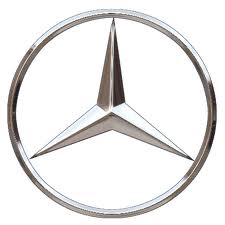ML 320 (163.154) V6-3.2L (112.942) (1998)
/v6-3.2l_(112.942)/Page-3345003.png)
The accuracy can be affected by nearby magnetic influences (e.g. tall buildings, bridges, power cables, transmission units, magnetic or ferromagnetic
objects).
It is important to set the correct compass zone to ensure the greatest possible accuracy. The compass must also be calibrated
Networking
The trip computer control module (N41) receives information about the route from the electronic compass (B26) via a serial two-wire interface (R6485).
The status of the tailgate rotary tumbler microswitch (S68/1)), which is read in by the all activity module (N10) ,is sent to the trip computer control
module (N41) on the engine compartment CAN.
Momentary and Average Fuel Consumption, Function
Momentary fuel consumption
The momentary fuel consumption is displayed in either miles per gallon (the possible range is 99.9 (previously 70) mi/gal to 0 mi/gal), or in 1/100 km
(Fig. 2) (the possible range is 01/100 km to 36 (previously 99.9) 1/100 km).
The current fuel consumption is calculated from the distance traveled in a second and the quantity of fuel used during this second. The value is updated
every second.
NOTE: When the engine is running and the vehicle is stationary, the maximum value (0 mi/gal or) 36 (previously 99.9) 1/100 km) is displayed. When
the vehicle is decelerating (inertia fuel shutoff) at rotational speeds of approx. 2000 rpm, the minimum value is displayed.
Average fuel consumption
The average fuel consumption is displayed in either miles per gallon (the possible range is 99.9 (previously 70) mi/gal to 0 mi/gal), or in 1100 km (the
possible range is 01/100 km to 36 (previously 99.9)1/100 km).
The average fuel consumption is calculated from the distance traveled since the last reset and the quantity of fuel required to travel this distance. The
